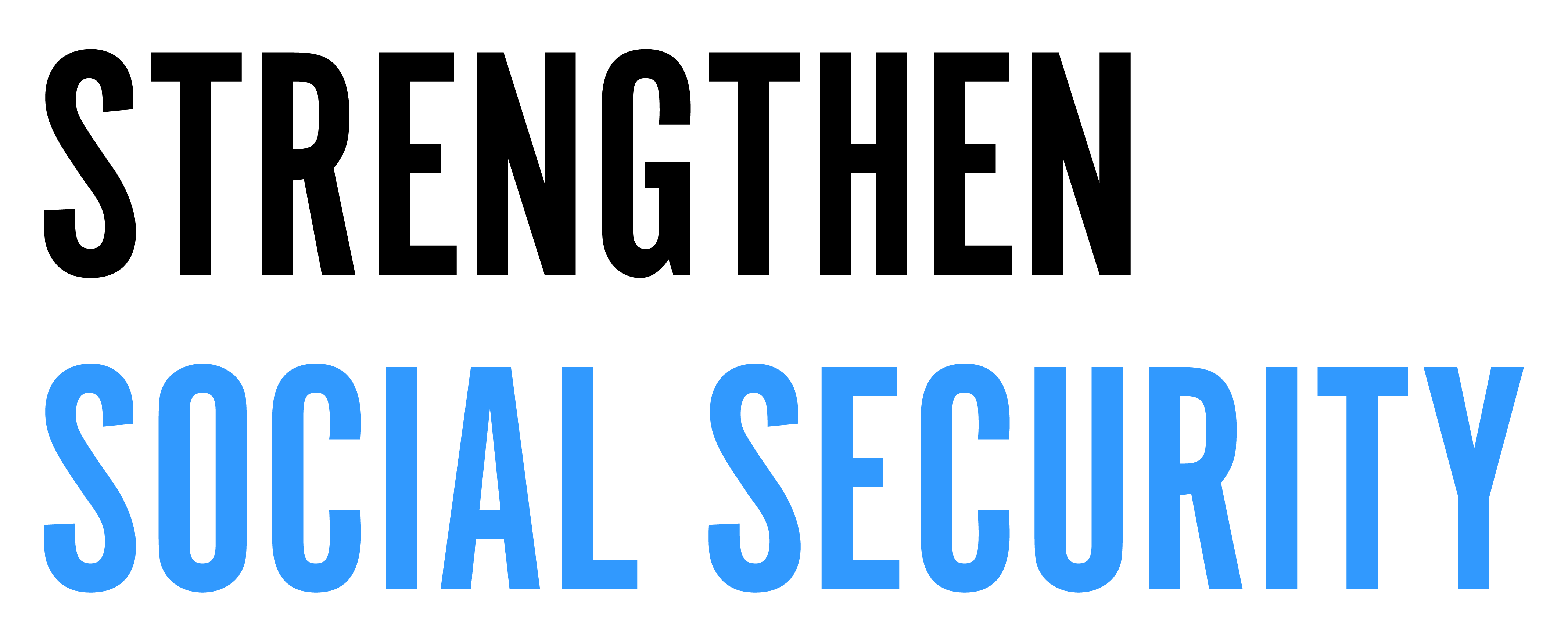Our coalition is made up of over 300 national and state organizations representing over 50 million Americans. The Strengthen Social Security Coalition stands united in support of the following principles:
✓ SOCIAL SECURITY’S BASIC STRUCTURE, WHICH EMBODIES THE BEST OF AMERICAN VALUES AND HAS STOOD THE TEST OF TIME, SHOULD BE PROTECTED.
The late Robert M. Ball, the longest serving commissioner of Social Security, began his Social Security career in 1939 and was involved in all major reforms from that time until his death in 2008. He defined the fundamental structure and principles in the landmark essay, “The Nine Guiding Principles of Social Security.”
Both in the essay and throughout his long, storied career, Mr. Ball explained that changes to Social Security have and always should occur “within a framework consisting of nine major principles. Social Security is universal; an earned right; wage-related; contributory and self-financed; redistributive; not means-tested; wage-indexed; inflation-protected; and compulsory.”
The members of this Coalition subscribe to each of those guiding principles. We oppose proposals to means-test Social Security, change it into a defined contribution plan, or cut its dedicated premiums and substitute an open-ended draw on the general fund for its financing. These and similar ideas are contrary to Social Security’s underlying structure, principles, and values.
✓ SOCIAL SECURITY IS A SOLUTION AND SHOULD BE EXPANDED.
Expanding social security is a solution. It provides retirement, disability, and life insurance to nearly all of America’s working families more efficiently, securely, and universally than its private sector counterparts. Social Security lifts millions of Americans, including over a million children, out of poverty and reduces the depth of poverty for millions more. Expanding Social Security is key to addressing many of our nation’s most pressing problems, including the retirement income crisis, growing income and wealth inequality, and the financial squeeze on working families.
When signing the Social Security Act of 1935 into law, President Franklin Roosevelt explained, “This law… represents a cornerstone in a structure which is being built but is by no means complete.” Consistent with that incremental approach, survivors’ and spousal protections were added in 1939, long-term disability insurance was added in 1956, and Medicare and Medicaid were added in 1965. No additional risks have been added since then, though. It is well past time to build on the strong cornerstone laid down in 1935 and address additional risks that result in lost wages and increased expenses.
✓ SOCIAL SECURITY IS A VEHICLE FOR SOCIAL AND ECONOMIC JUSTICE. EXPANDING IT WILL MAKE IT EVEN MORE SO.
Social Security is designed to disproportionately benefit low-wage earners, including people of color, women, those with disabilities, members of the LGBTQ+ community, and others who have suffered discrimination. Moreover, because those discriminated groups are less likely to work in jobs that provide supplemental pensions, they are even more reliant on their earned Social Security benefits than white, non-Hispanic men, on average. Expanding benefits both across-the-board and in targeted ways can cause our Social Security system to be an even more important and effective vehicle of social and economic justice.
✓ ALL REFORMS OF SOCIAL SECURITY SHOULD GO THROUGH REGULAR ORDER, IN THE SUNSHINE.
Social Security is an extremely important issue that touches everyone’s lives. It should only be modified in the sunshine, subject to the full Congressional process known as regular order, with open hearings, Committee consideration with the ability to amend, and full debate on the floor of each chamber with the ability to amend. That is what has been done historically and that is what should be done in the future. Opponents of Social Security often try to use bipartisan commissions to fast-track Social Security legislation that would force through unpopular changes. Should that happen, it would be a major disservice to current and future beneficiaries.
Nancy J. Altman, Chair
For media inquiries, email our Communications Director, Linda Benesch, at lbenesch@socialsecurityworks.org.
